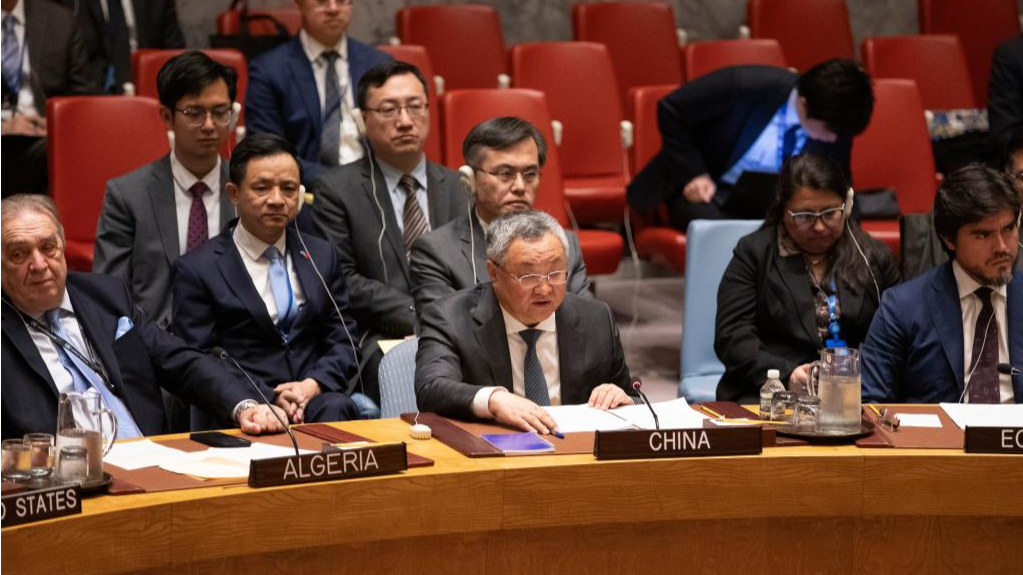
UNITED NATIONS — NATO's war against Yugoslavia 25 years ago shows that the idea of human rights above sovereignty does not work, said a Chinese envoy on Monday.
Fu Cong, China's permanent representative to the United Nations, made the statement at a Security Council meeting on Kosovo.
Although 25 years have passed since NATO's war against Yugoslavia, that war is far from becoming history. The warnings and lessons from that war remain sobering
NATO carried out an aerial bombing campaign against the Federal Republic of Yugoslavia in 1999 during the Kosovo War.
READ MORE: NATO expansion alters security dynamics, woefully
Last month, Russia requested a Security Council meeting on the 25th anniversary of NATO's bombing of Yugoslavia. Although the meeting was blocked, some council members expressed their wish to have further discussions on the matter under the topic of Kosovo, said Fu.
Although 25 years have passed since NATO's war against Yugoslavia, that war is far from becoming history. The warnings and lessons from that war remain sobering, he said.
First, disputes between countries should be resolved by peaceful means. The reflex use or threat of force should be opposed at all times, he said. "If we allow the biggest fist to have the final say, the sovereignty and independence of small and less powerful countries will be undermined, justice will cease to exist, and the pursuit of peace will be eternally elusive."
Second, the principle of respect for state sovereignty and territorial integrity should be applied universally, rather than selectively on the basis of expediency. After waging a war against Yugoslavia, NATO repeatedly invoked the protection of human rights and subsequently carried out military operations in Libya and other places, he said. "Facts have shown that the so-called narrative of human rights above sovereignty is effectively reducing human rights to a political tool to interfere in the internal affairs of states. Ultimately, such a practice not only eroded sovereignty, but also failed to deliver the promised protection of human rights."
China remains committed to working with all parties to make sustained efforts to promote the peaceful coexistence of the two communities and the political settlement of relevant issues in Kosovo
READ MORE: NATO's meddling in Asia-Pacific threatens regional peace
Third, in the pursuit of national security, states should uphold the concept of indivisible security and seek common security, rather than achieving their own security at the expense of that of others. Embracing and implementing a common, comprehensive, cooperative, and sustainable security concept represents a long-term approach to tackling global security challenges, said Fu.
Fourth, ethnic and communal issues in a country should be properly resolved by the government and people of that country through their own efforts within the legal framework, and should not be used as an excuse for external interference, he said.
"We hope that all parties can draw lessons from history, reflect on themselves, contribute more to the maintenance of peace and security, and prevent a relapse into conflict in Kosovo and the wider Balkans," said Fu. "China remains committed to working with all parties to make sustained efforts to promote the peaceful coexistence of the two communities and the political settlement of relevant issues in Kosovo."


